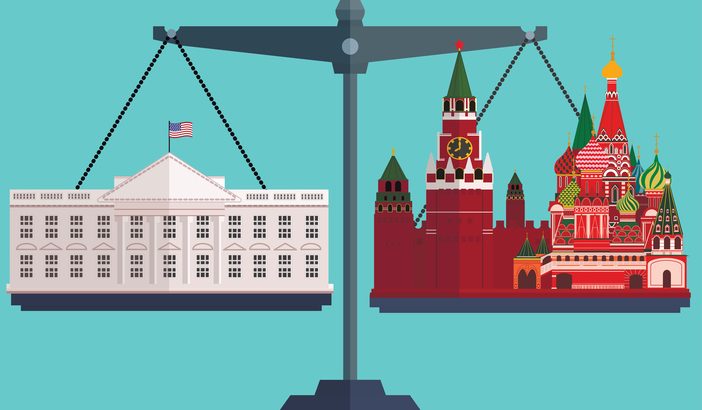Energy expert Brian Murray joins a panel to discuss the president’s decision to pull the United States out of the agreement. Murray says the move means the world’s second-largest emitter of greenhouse gases is stepping away from the international process to address emissions over the next several decades, and that the responsibility will now fall on other nations. (starts at 8:25 mark)
Watch More on “Capital Tonight”Category: Politics-Public Policy

Reactions To Trump’s Climate Accord Decision
“The notion that this change in policy will somehow resurrect the coal mine sector is a little bit hard to fathom,” says Brian Murray, interim director of Duke’s Energy Initiative. “Coal mining is subject to market forces that reduced employment significantly over the last several decades.”
Watch More on ABC11

Could ISIS Have Been Averted? US Not to Blame
“The United States is not to blame for the rise of the Islamic State. Nor is the United States all-powerful, capable of preventing any evil in the world. Far from it. But different U.S. policies might have better positioned it in the fight against the Islamic State,” writes political scientist Peter Feaver.
Read More in Foreign Policy
Could the Russia Investigation Reveal Trump’s Tax Returns?
Law professor Samuel Buell says he is convinced that if former FBI Director Robert Mueller, the newly named special prosecutor in the Trump-Russia investigation, believed he needed Trump’s tax returns, he would seek them and get them quickly. “It’s hard to imagine an individual connected with federal law enforcement still alive in the United States with his stature,” Buell says.
Read More in Politico
Takeaways From A Possible US Exit Of Paris Climate Accord
Being a part of Paris Accord discussions is so important that it’s spurred many companies across a broad array of U.S. sectors to advocate for staying in the agreement, says Brian Murray, director of the Environmental Economics Program at the Nicholas Institute for Environmental Policy Solutions. “You want the U.S. at the negotiating table,” Murray says. “These are companies that operate in most of those countries anyway, so they’re going to be living with the Paris agreement with or without the United States in it.”
Read More at Law 360
Five Reasons Why the US-Vietnam Relationship Matters
“The White House visit by Vietnamese Prime Minister Nguyễn Xuân Phúc on May 31 will be the first by a leader of a Southeast Asian nation since Trump’s inauguration. It signals awareness of the tremendous opportunity to build on the foundations laid by Presidents Bush and Obama to establish a strong framework for cooperative development and peaceful engagement,” write political scientist Edmund Malesky and Renate Kwon, program manager of the Southeast Asia Research Group.
Read More on Medium
History of Business Fraud in America
Edward Balleisen, associate professor of history and public policy, talks about the history of business fraud in America as a guest on C-SPAN2’s “Book TV.” Balleisen’s recent book, “Fraud: An American History from Barnum to Madoff,” looks at the development of regulations to protect consumers and investors.
Watch More on C-SPAN2

Growing Military Clout Could Shift Foreign Policy
Generals dominate just about every big national security decision President Trump makes. Chastened by the losses in Iraq, will military officers take a more cautious view? “The conventional wisdom on this is probably wrong,” says political scientist Peter Feaver, a national security adviser in George W. Bush’s White House. “Empirically, the military is more reluctant to use force . . . but if force is used, then they want it to be used without restraint.”
Read More in The Washington Post
Policymakers Must Prepare For New ISIS Threats In The Future
“It is imperative that the United States and local allies learn how to respond to ISIS’ presence in the physical and cyber domains now. If we cannot learn to outpace ISIS, we will not be ready for the group that surpasses it,” writes Andrew Byers, a visiting assistant professor of history who has served as an intelligence and counterterrorism analyst.
Read More in The Hill

Manchester Attack Underscores ISIS’ Willingness To Use Kids
Some terrorism experts are waiting for additional information to confirm whether Salman Abedi’s target was chosen for him by ISIS, or whether he was self-radicalized. “Is this (attack) showing that ISIS is having such influence that it’s in communication with people in the West, that it is doing the target suggestion? Is it involved in providing training, materials, direct encouragement of individuals? asked public policy professor David Schanzer, director of the Triangle Center on Terrorism and Homeland Security.
Read More at WJLA

Why Suckering Americans is a Booming Business
“We now have an administration in Washington that trashes regulation of all sorts and appoints vehement opponents of regulation to run federal agencies. It’s not hard to imagine that enforcement budgets for consumer and investor protection will once again take a big hit, and that federal regulators will adopt a more forgiving posture toward dodgy marketing tactics,” writes Edward Balleisen, associate professor of history and public policy.
Read More in Zocalo
Impact of Supreme Court Rejecting NC Redistricting
The U.S. Supreme Court Monday struck down North Carolina’s 1st and 12th congressional district lines drawn by state legislators in 2011. A three-judge federal court ruling had previously found that lawmakers relied too heavily on race when drawing the boundaries. “You’re likely to see state legislature be extremely careful in using race in redistricting, because uses of race are likely to be struck down by a federal court,” says law professor Guy Charles.
Listen to More on WFAE


